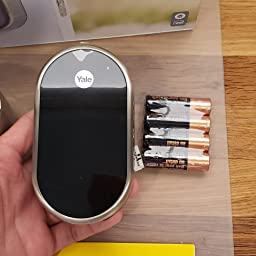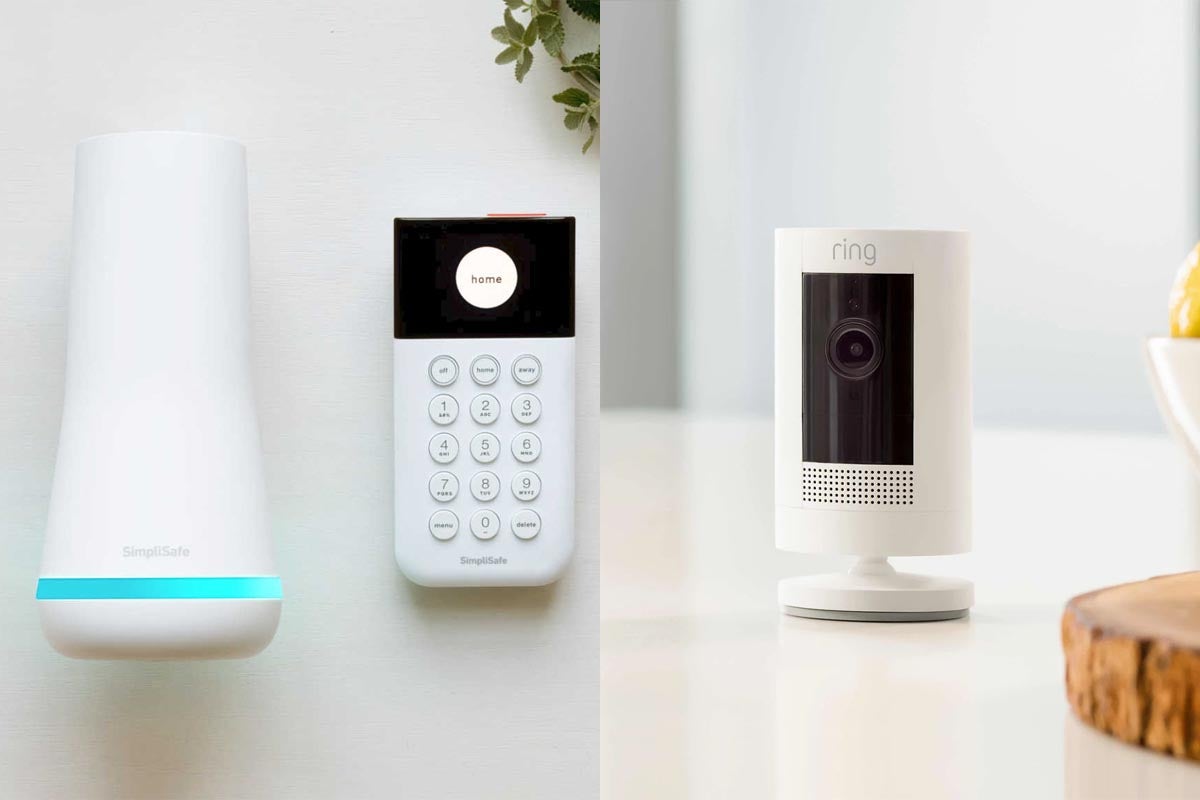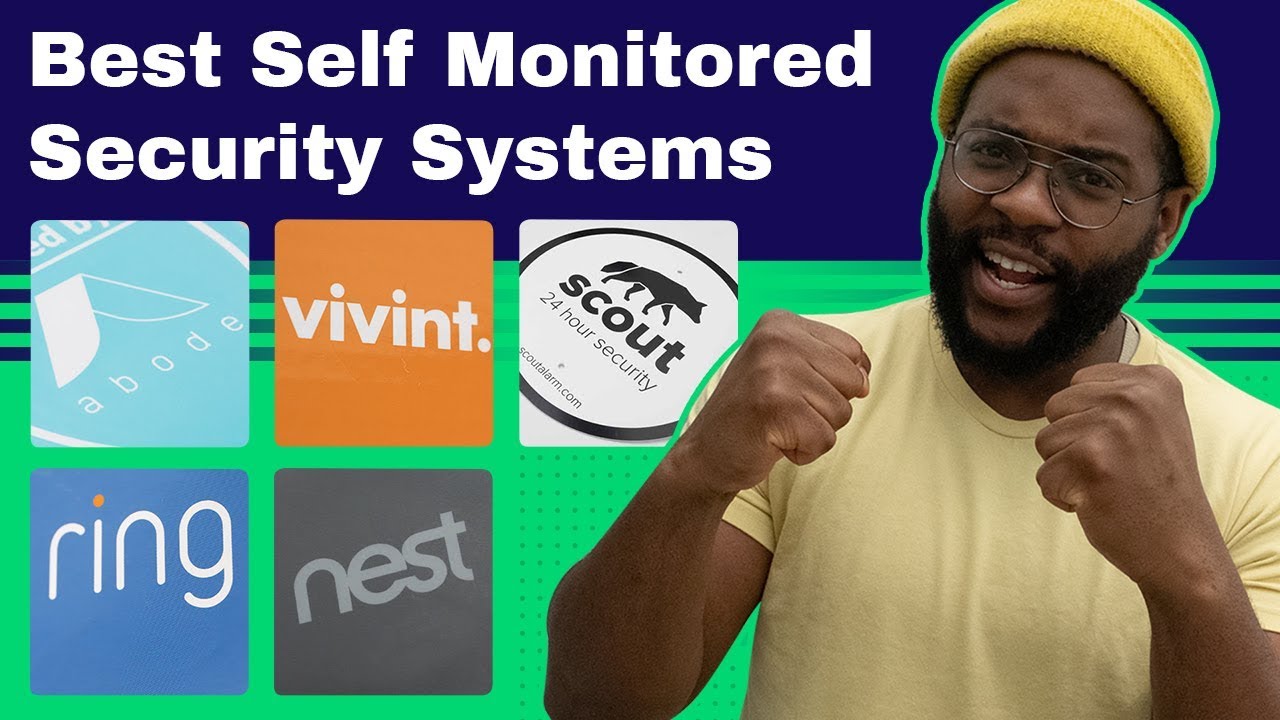
Schlage Encode deadbolts are some of the most advanced on the marketplace. It features Wi-Fi connectivity, which lets you remotely control your door, as well as manage up to 100 guests access codes. It also has a touchscreen with a fingerprint-resistant and capacitive surface for easy one-touch locking.
Wi-Fi-enabled deadbolt
Schlage's WiFi-enabled deadbols come in a pair with Schlage Home to enable guest access codes to be created. It can store up to 100 codes, and the fingerprint-resistant touchscreen enables one-touch locking and unlocking.

The Schlage Encode Smart WiFi Deadbolt connects with the home's WiFi and is compatible with most smart home hubs, including Apple HomeKit, Amazon Alexa, and Google Assistant. The device also works with any Z-Wave device, such as a smart TV. It can also easily be controlled by a smartphone using Bluetooth. It is not compatible yet with Zigbee Hubs.
Lacks two-factor authentication
Schlage Encode does not have two-factor authentication. This is one of the issues. This feature is not available on the device and must be set up using a separate app. It can also be affected by connectivity issues and insufficient bandwidth. You can try unplugging the Schlage Encode to resolve this issue and reconnect it again.
You will need to update the Schlage Encode App to make sure it is connected to your network. You might also have it connected to the wrong WiFi band. You should place it close to your router if this happens.
Lacks dual data encryption
Schlage Encode Plus smart locks claim to use dual data encryption (upto 128-bit AES). This should prevent unauthorised access. The smart lock's app doesn't have two-factor verification, so you will be alerted if someone attempts to access it. Wyze Lock, another smart lock, also has two-factor authentication. To use this feature, you will need an app.

Lacks fingerprint sensor
Invisible locks, which lack a touchscreen or other accessories, are wireless and work with a fingerprint sensor. You can control them using your mobile phone, tablet or voice recognition. These locks can also be unlocked via Bluetooth or Wi-Fi waves. These locks are a great choice for landlords concerned about security.
FAQ
How do you choose between different home security systems types?
You need to assess the level of threat in your community. For example, if there's a lot of crime in your neighborhood, then you might want an alarm that will sound when someone enters your property. You may not need as much security if you live in rural areas with few burglaries.
Also, consider whether you are willing to pay extra for additional features. Some systems have cameras built in while others do not. Some systems allow you to remotely monitor your home, while others require that you be present to view the footage.
Do motion sensors have alarms
The popularity of motion sensor alarms has increased over the years due to rising thefts and break ins. The problem with these devices is that they are often too expensive, and they don't work well when placed inside cabinets. If you are looking to protect your home from potential intruders, a motion sensor alarm system might be worth considering.
Which is better: home security cameras or home security systems?
Home security systems are better than home security camera because they can detect movement and sounds even if nobody is in the room. On the other side, home security cameras are much cheaper than home alarm systems and can be easily mounted to windows and doors.
What is the best security system?
The most important thing to consider when choosing the security system for your home is how valuable you are and what you have. A basic alarm system is a good option, but it doesn't provide enough protection. You can also get a more sophisticated one that offers remote monitoring, video surveillance and access control.
What is your number one home security product?
Ring Video Doorbell Pro is our number one home alarm system. It allows you to see and speak to anyone at anytime from anywhere using your smartphone. You can also record video and share it via text message and email with your friends and family.
Do I really want a home alarm?
Home security systems are essential if you have a home. You don't have to be worried about a burglar breaking into your home. They will take everything they want, even expensive jewelry. You can leave your doors unlocked and they'll take everything.
Home security systems help you protect your home and notify you when something is happening. This includes monitoring motion, sending you alerts to mobile devices, recording activity, as well as allowing access to recorded footage.
A DIY camera is a great alternative to a full-blown home security system. These devices let you see who's at the front door and send you notifications when they enter or exit. But they won't help you stop intruders from breaking into your home.
What is the difference of surveillance and security camera?
Surveillance cameras are used for monitoring purposes, while security cameras are used for protection.
Both types have their strengths and weaknesses. There is one major difference between the two types of cameras: the type of images that they capture. Surveillance cameras record video with slow motion so that you can view what's happening right now. On the other hand, security cameras only record video and still pictures, which is saved to review later.
Statistics
- Most home security companies will charge you around 75% of the remaining term of your contract if you cancel early—and some require 100%.Related questionsWhat type of contract length can I expect from security providers?Home security system cancellation (safewise.com)
- Unlike other online safety services that charge up to 100 percent of your monthly fee, Cove charges no upfront fees and has no hidden costs.
- Depending on your insurance, 24/7 professional monitoring may qualify you for as much as 15% off your premium. (safewise.com)
- Depending on your insurance, 24/7 professional monitoring may qualify you for as much as 15% off your premium. (safewise.com)
External Links
How To
What to look for from a Home Security Monitoring business
There are many aspects to take into consideration when choosing a security monitoring company for your home. Make sure you have someone who is familiar with what they are doing. Ask around to find out if there are any other people who have used this service provider. If they aren't recommended, don't use them. Ask your family and friends if they would recommend this company. This allows you to receive honest feedback from actual users of the services. Read reviews and visit the website to learn more about the company. Visit their website as well as social media sites such Facebook and Twitter. You can read customer testimonials and complaints. Look for negative comments, and find out the reason they were posted. This could be a sign that something has happened to a client.
Next is to verify references. Call up past clients and ask them how they liked the service. Were they happy with the quality of the work? Did everything go according to plan? Check that the previous company was reliable. They didn't just give a quote, but finished the job.
Next, choose a company that is licensed and insured. A good policy of insurance will protect your property if it is damaged while you're gone. The best companies offer 24/7 assistance so that you don’t have to worry about calling during business hours.
Make sure to check whether maintenance and installation is included with the price. Some companies charge extra for these services, which makes sense because installing and maintaining equipment takes time and money. Some companies only offer basic monitoring services which are not sufficient for most homeowners.
Finally, make sure that the company's prices are reasonable. You shouldn't be paying too much for a substandard product. Always compare apples to apples when comparing providers. A basic monitoring service might cost $150 per month, while a different provider might charge $200 per months for the same services. So, if you want to save money, you need to shop around.